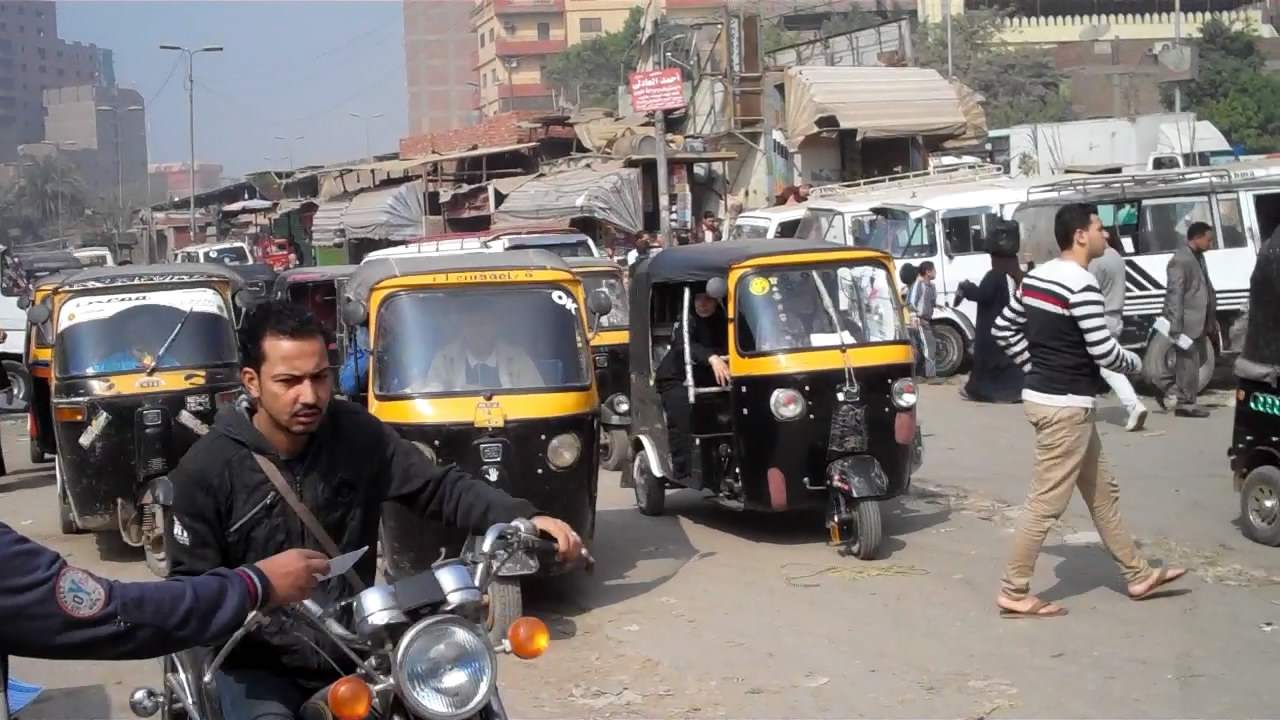Latest NEWS
- Aswat Masriya, the last word
- Roundup of Egypt's press headlines on March 15, 2017
- Roundup of Egypt's press headlines on March 14, 2017
- Former Egyptian President Hosni Mubarak to be released: lawyer
- Roundup of Egypt's press headlines on March 13, 2017
- Egypt's capital set to grow by half a million in 2017
- Egypt's wheat reserves to double with start of harvest -supply min
- Roundup of Egypt's press headlines on March 12, 2017
UN Women take anti-sexual harassment campaigning to Cairo's tuktuk drivers

By Omnia Talal
Tuktuk driver Mohamed Shaaban was contacted by a civil society organisation, offering him a chance to participate in a workshop for tuktuk drivers. Tuktuks are three-wheeler vehicles used for hire.
At the time Shaaban did not know anything about UN Women or its global initiative, Safe Cities, launched as a solution to sexual harassment and sexual violence in public spaces.
Shaaban took part in the workshops that included 15 to 20 other drivers, where they learned to draw and express through art what women are subjected to. All drivers were selected from three underprivileged neighbourhoods in Cairo.
Training instructor John Milad said it was not easy to convince the drivers to partake in the workshops. But by the end of the training, most of them were convinced that girls and women have the right to a safe environment, free of violence and harassment.
Formerly, they believed that women who wore "obscene" clothes should be harassed.
The trainees were divided into groups that discussed violence against women and its different forms, coming up with a painting or written piece afterwards.
"I was not interested in the workshop at all. But later I benefited a lot and I learned a lot of things," Shaaban said, during an event organised by UN Women.
He said art has made him think about the role that he can take to face negative trends in society.
Shaaban has decided to convince other drivers to take part in workshops.
UN Women chose to work with tuktuk drivers based on reports suggesting that they commit harassment, which created an urgent need to solve the root cause of the problem.
Shaaban admitted that tuktuk drivers harass female passengers but he rejected the stereotype on tuktuk drivers that portrays them as "thugs". He asserted that the drivers are just trying to earn their living.
Milad said he realised that he delivered his message when the wife of one of the drivers sent him a message to thank him and a keffiyeh, a scarf which she made herself.
She said her husband now buys her flowers and gifts instead of beating and humiliating her.
In Egypt, the Safe Cities initiative was launched in November 2010, with several partners in the civil society, private sector, other UN agencies and the Egyptian government. It will run until 2018.










